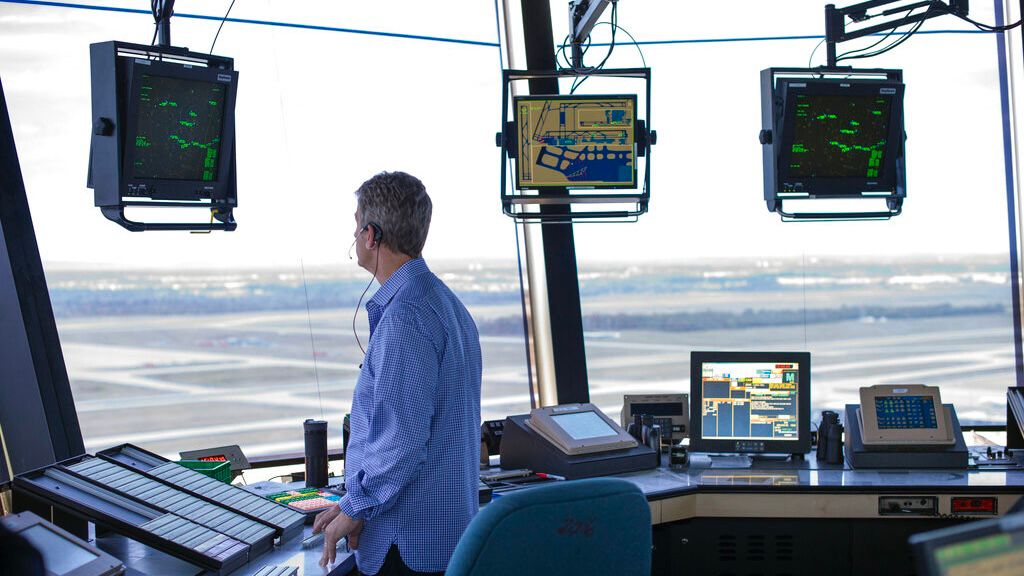The Federal Aviation Administration will implement new policies to make sure air traffic controllers are getting enough rest, following an agency report released Friday.
Starting in July, they will be required to take 10 hours off between shifts and 12 hours off before midnight shifts to help reduce fatigue.
“In my first few months at the helm of the FAA, I toured air traffic control facilities around the country and heard concerns about schedules that do not always allow controllers to get enough rest,” FAA Administrator Mike Whitaker said in a statement Friday — the same day the agency released a 114-page report about the risks of air traffic controller fatigue and how to prevent it.
“With the safety of our controllers and national airspace always top of mind for FAA, I took this very seriously, and we’re taking action,” he said.
Like many employers in the United States, the FAA has struggled to recruit and train employees for a critical role in flight safety. Every day, 45,000 flights carry 2.9 million passengers in the U.S. airspace. Those flights are overseen by 13,000 air traffic controllers who work in 313 facilities.
Last month, Whitaker said hiring and onboarding more controllers was essential to meet increasing traffic volume and safely integrate new users in the national airspace. On Friday, he said the agency plans to hire 1,800 new controllers this year and 2,000 in 2025 to take the pressure off the current workforce.
The FAA report from the Scientific Expert Panel on Air Traffic Controller Safety, Work Hours and Health urged the agency to take quick action to eliminate traffic controllers’ current scheduling system and replace it with one “that incorporates sleep and circadian principles.”
Circadian rhythm is the 24-hour internal clock in human brains that regulates cycles of alertness and sleepiness by responding to light changes in the environment, according to the National Institutes of Health.
“Fatigue related to sleep loss and circadian disruption is created when human operators work schedules around-the-clock and is known to have significant adverse effects across safety, performance, health and mood,” the fatigue experts wrote in their report.
Commissioned by the FAA in December, the researchers spent ten weeks looking at the country’s air traffic controller workforce, work requirements and scheduling practices based on site visits to four air traffic operations facilities and an analysis of more than 10,000 air traffic controllers.



